April 25, 2024 | 09:19 GMT +7
April 25, 2024 | 09:19 GMT +7
Hotline: 0913.378.918
April 25, 2024 | 09:19 GMT +7
Hotline: 0913.378.918
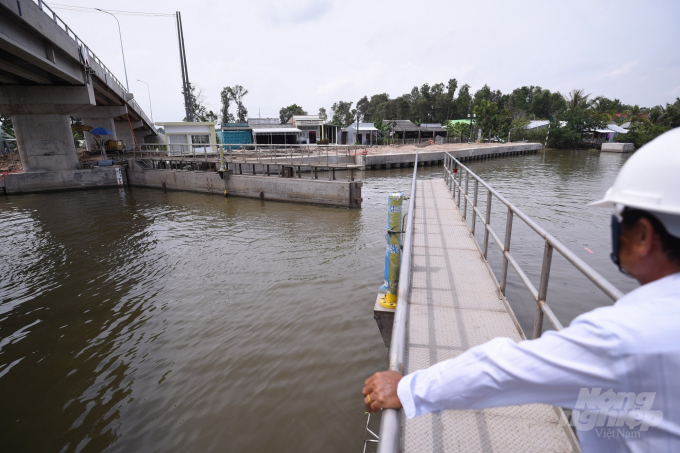
The boat lock in Ninh Quoi, one of the control structures for freshwater salinity in the Mekong Delta. Photo: Tung Dinh.
On January 21, the Ministry of Agriculture and Rural Development and the Ministry of Planning and Investment had a meeting to work on the " Mekong Delta Draft-Planning period 2021-2030, vision to 2050" with the participation of Deputy Minister of Agriculture and Rural Development Nguyen Hoang Hiep, Deputy Minister of Planning and Investment Tran Quoc Phuong, related units and consulting company Haskoning DHV, The Netherlands.
During this meeting, all sides discussed a series of issues related to agriculture in the Mekong Delta region, including zoning, rural development, irrigation, natural disaster prevention, cultivation, fisheries and forestry.
According to the draft by the consulting unit - Haskoning DHV Company of the Netherlands, the development orientation of irrigation infrastructure for the Mekong Delta will be naturally zoned into 3 groups: all year round fresh water; all year round brackish water; alternating brackish fresh water.
In the alternating brackish water areas, directions include controlling but not preventing salinity, thereby shifting livelihoods towards climate change adaptation such as focusing on fisheries or high value crops.
Mr. Do Duc Dung, Director of Southern Institute of Water Resources Planning, said that the zoning in the draft is still fuzzy, there is no inheritance, especially that of irrigation infrastructure.
In addition, zoning also affects agricultural production, so the livelihood conversion plan should be studied in more details. The reason, according to Mr. Dung, is because not all people accept change and leave what they have.
Deputy Minister Nguyen Hoang Hiep also affirmed that the zoning of fresh or salinated water is not feasible because of unstable salinity.
“The division into 3 regions for production and living is necessary but must be flexible, helping localities and people decide what to produce.” Deputy Minister Hiep commented.
Deputy Minister Nguyen Hoang Hiep also emphasized that the planning of the Mekong Delta should be nature-based to create breakthroughs for the agricultural sector in this region. In particular, the irrigation planning must be forward-looking but should be suitable with the existing infrastructure.
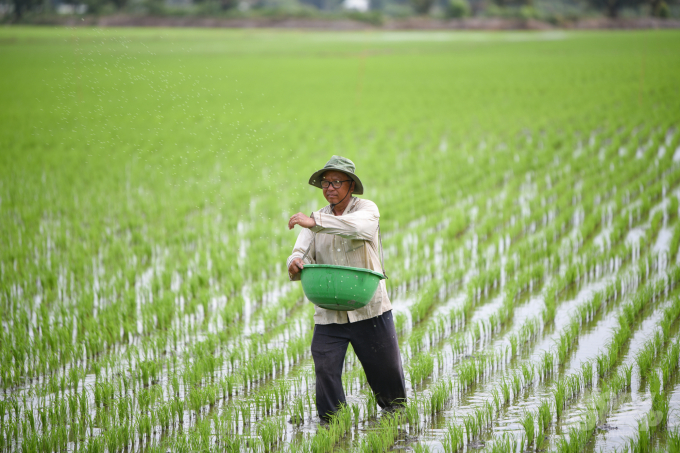
Planning for the Mekong Delta in the period 2021-2030 with a vision to 2050 needs to meet many requirements for the agricultural sector. Photo: Tung Dinh.
Currently, the Mekong Delta region has 1.8 million hectares of rice cultivation. According to the draft master plan, this area will be only 1.4 million hectares by 2030 and down to 1 million by 2050. Similarly, output will also decrease from 23.6 million tons of rice at present to 10-15 million tons in the future.
Mr. Nguyen Nhu Cuong, Director of the Department of Crop Production, said that it is important to set a minimum output to ensure food security in place for the region.
To further direct on this issue, Deputy Minister Nguyen Hoang Hiep assigned the Department of Crop Production to conduct research and give a specific number of rice required for the Mekong Delta by 2030, thereby helping the consultant to give suitable planning directions.
In addition to rice acreage and yield, the Dutch consultant also said that it is necessary to quickly change the rice area from 3 crops to 2 crops or 1 crop combined with vegetables or seafood. However, this option needs further evaluation.
In this draft, fisheries development is considered as one of the three key points of view, namely rethinking about food security, turning the strategic axis to fruit - seafood - rice to match market.
The consultant said that in the future, it is necessary to reduce exploitation and increase aquaculture. Regarding exploitation, the output will be narrowed but the capacity of preservation and processing will be improved to increase value and reduce losses.
Regarding farming, aquaculture methods should be maintained and converted towards increasing productivity and quality. In addition, methods that are suitable for aquaculture systems specific to brackish and fresh areas should be applied.
Translated by Meagan Phan
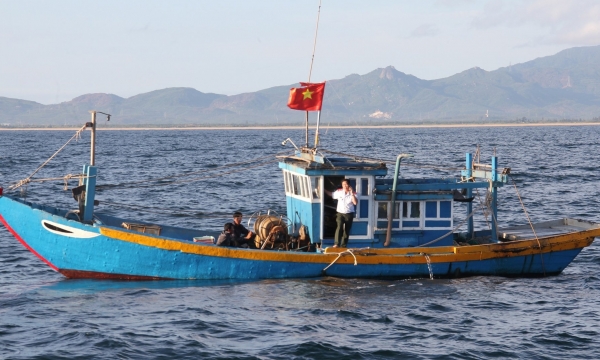
(VAN) Combating IUU fishing is a worldwide problem. As a result, governments must strengthen their collaboration in order to take effective action and guarantee the sustainability of seafood resources.
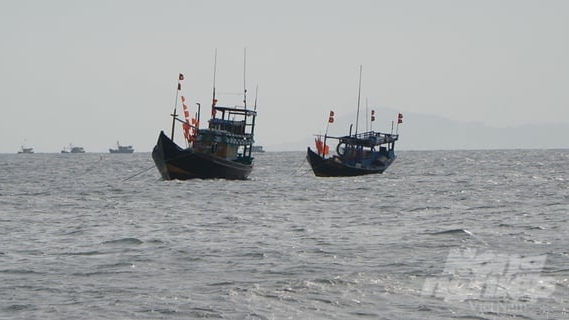
(VAN) Strict management of '3 no' fishing vessels in Ba Ria - Vung Tau helps the province effectively implement the EC's anti-IUU fishing recommendations and control the fishing fleet.
/2024/04/22/3159-9-202859_158.jpg)
(VAN) There are three main solution pillars for developing the crop production industry, including resources, infrastructure, and science and technology.
/2024/04/22/4244-anh-3-193503_494.jpg)
(VAN) The national crop production strategy is a good opportunity to create diversity, bring income to farmers, increase economic value, and contribute to socio-economic development.
/2024/04/22/1205-1-190414_594.jpg)
(VAN) The Prime Minister issued Decision No. 1784 dated December 30, 2023, approving the plan to develop the crop production industry until 2030, with a vision to 2050.
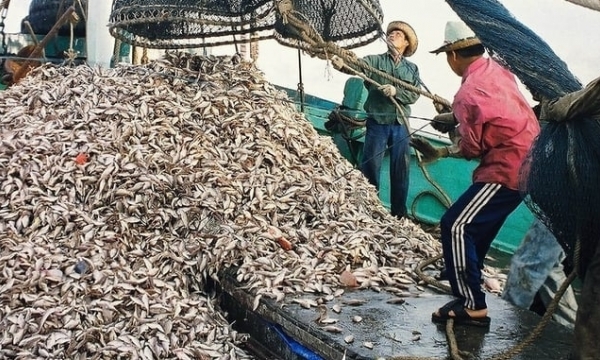
(VAN) The goal of the action plan is to identify anti-IUU fishing as an urgent, crucial and long-term task for the sustainable development of the fisheries sector.
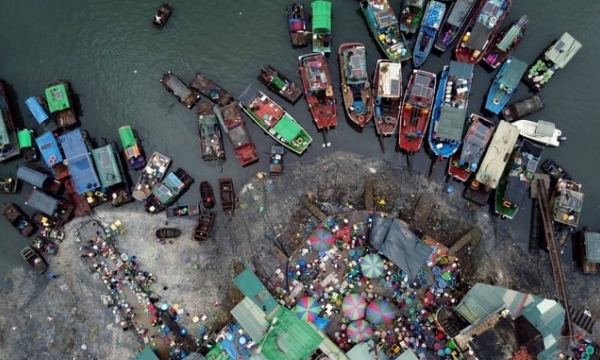
(VAN) Despite numerous challenges, Permanent Member of the Secretariat Truong Thi Mai emphasized the need for decisive action to achieve tangible results in anti-IUU fishing efforts.